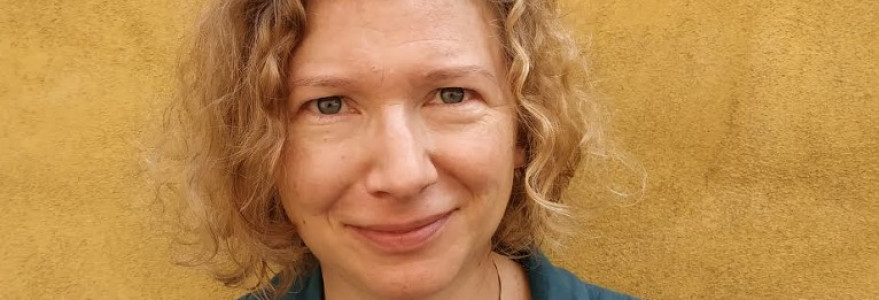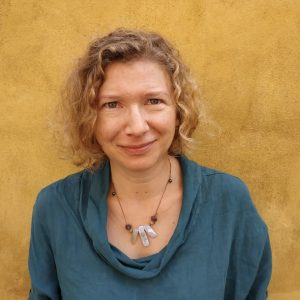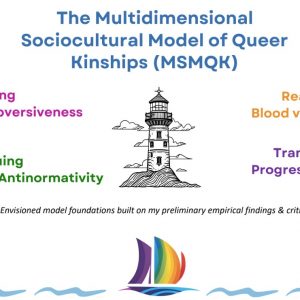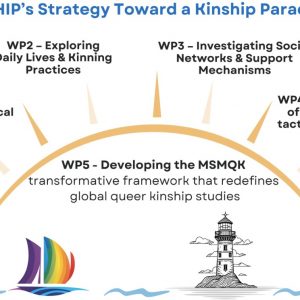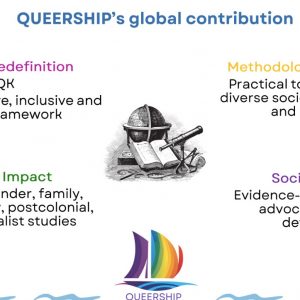Prof. Joanna Mizielińska has been awarded a prestigious Advanced grant by the European Research Council (ERC) for a project on a new look at queer kinship: LGBTIQ* families with children in Central and Eastern Europe. The project will be carried out at the Faculty of Sociology at the University of Warsaw.
Why is research on queer kinship in the context of Central and Eastern Europe relevant from a global perspective? How can the project influence social policy in the countries studied and how can it change the perception of LGBTIQ* families in the public debate? Is it possible to create a universal queer kinship model that takes into account cultural diversity while offering a universal analytical framework?
These and other questions will be answered by Prof. Joanna Mizielińska, who has been awarded a prestigious Advanced grant by the European Research Council (ERC) for her QUEERSHIP project.
The project Rethinking Queer Kinship: LGBTIQ* Families with Children in Central and Eastern Europe (QUEERSHIP) will last for five years and will be carried out at the UW’s Faculty of Sociology.
Prof. Mizielińska proposes a new, contextualised perspective on queer kinship, taking into account the historical, cultural and political specificities of Central and Eastern Europe, a region that has so far too often been overlooked or oversimplified in global academic debates.
By considering the local experiences, family structures and relational practices of LGBTIQ* people, the project will not only broaden existing understandings of family and kinship, but will also challenge the universality of Anglo-American models, contributing to more sustainable and inclusive social theory.
The project has been awarded €2.5 million in funding.
Families “outside the norm”
The dominant theories in queer kinship studies, mainly derived from Anglo-American contexts, rarely take into account the complexity of the experiences of LGBTIQ* families in Central and Eastern Europe. This approach leads to simplifications and perpetuates the marginalisation of the region.
“The QUEERSHIP project addresses this gap by offering the first transnational, interdisciplinary study of queer kinship in Poland, Hungary, the Czech Republic and Croatia,” Prof. Joanna Mizielińska explains.
The project involves the development of a multidimensional queer sociocultural kinship model (WSMPQ), which will challenge current Anglo-American paradigms and broaden the understanding of family, kinship, gender and sexuality. Unlike most studies that focus exclusively on same-sex cisgender families or separately on the experiences of trans people, QUEERSHIP takes a holistic approach, exploring together different identities and relational practices within a single analytical framework.
“The project also takes into account different perspectives – bringing together the voices of LGBTIQ* families, their loved ones – families of origin, friends – activist individuals and professionals working with families, thus capturing the complexity of the everyday experiences of these families,” Prof. Mizielińska adds.
Interdisciplinarity and participation
QUEERSHIP is based on an approach that combines a variety of research methods: discourse analysis, longitudinal ethnography, focus interviews and quantitative research. This approach makes it possible to comprehensively capture the processes of formation, duration and social representation of LGBTIQ* families in diverse socio-cultural and political contexts.
An important element of the project is also its participatory nature – those participating in the research co-create the research process, which allows the methods to be better adapted to the actual experiences of queer families.
By integrating different perspectives and using a robust interdisciplinary analytical framework, QUEERSHIP brings a ground-breaking approach to queer kinship and family research. The project’s findings, its innovative methodology and the proposed WSMPQ model will enrich scholarly debates in gender, sexuality and kinship studies, as well as postcolonial and post-socialist studies, opening up new perspectives for research that better captures the complexity of LGBTIQ* family life.
Prof. Joanna Mizielińska is employed at the Institute of Sociology, Civitas University. She received her doctorate in sociology from the Institute of Applied Social Sciences in 2009. Prior to that, she completed her doctoral studies at the School of Social Sciences at the Institute of Philosophy and Sociology of the Polish Academy of Sciences. She was a Fulbright scholar at Princeton University, USA, where she worked under the supervision of Prof. Judith Butler. She has also conducted research in Finland as a CIMO scholar and in Sweden (Centre for Baltic and East European Studies (CBEES) grant, Södertörn University College, Stockholm).
Between 2013 and 2016, Prof. Mizielińska led the project “Families of Choice in Poland”, on non-heterosexual families. Subsequently, she was co-implementer in the Erasmus Plus projects “Doing Rights: Innovative tools for Professionals Working with LGBT Families” (2017–2020), led by Prof. Federica de Cordova, University of Verona, and “Queer(y)ing Kinship in the Baltic Region and Beyond” led by Prof. U. Dahl, Södertörn, University of Södertörn (2016–2021). She is currently co-leading a project on visions of ageing for LGBT+ people in their fifties “Imagining queer aging futures – a study of LGBTQ aging in Estonia, Poland, and Sweden (IQAF)” led by Prof. Linn Sandberg from Södertörn University.
Prof. Joanna Mizielińska is the author of numerous articles on gender studies and queer theory published, among others, in The European Journal of Women’s Studies, Gender, Place and Culture, Sexualities, Journal of Homosexuality, Respublika Nova, Katedra, Przegląd Filozoficzno-Literacki, Pogranicza, Czas Kultury, Krytyka Polityczna, Studia Socjologiczne, Societas Civitas, etc. In 2004, she published a book (De)Konstrukcje kobiecości; in 2007 – Płeć/ciało/seksualność. Od feminizmu do teorii queer. In 2011, together with Robert Kulpa, she edited and published De-Centring Western Sexualities: Central and Eastern European Perspective (second edition Routledge 2016). In 2014, together with Marta Abramowicz and Agata Stasińska, she published Families of Choice in Poland. Family Life of Non-heterosexuals, and in 2017, together with Justyna Struzik and Agnieszka Król, In different voices. Families of Choice in Poland. In 2022, Routledge Publishing released her book Queer Kinship on the Edge? Families of Choice in Poland, in free access.
In 2023, the researcher received the Stefan Nowak Award, given by the Faculty of Sociology at the University of Warsaw for her achievements in social science methodology and for methodologically innovative research on Polish society. The jury singled out her work in the field of gender sociology and queer studies, in particular her series of studies on LGBTIQ* families.



